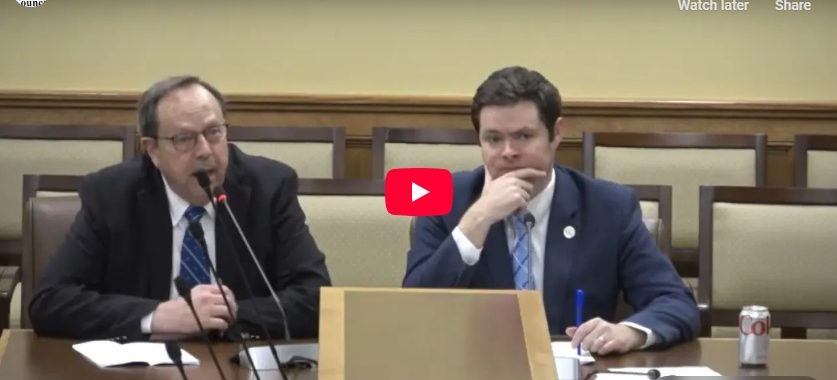Family Council Supports Amendment Requiring Ballot Measures to Pass in a Majority of Counties
On Monday evening Family Council President Jerry Cox testified in support of a proposed amendment that would require ballot measures to pass in a majority of Arkansas’ counties in order to become law.
As we have written many times this year, the Arkansas Constitution lets canvassers circulate petitions to place measures on a general election ballot. Its original intent was to give citizens a way to function as a “legislative body.” Unfortunately, powerful special interests have used the initiative process to put flawed, misleading, and deceptive measures on the ballot in Arkansas.
If a campaign has enough money, it can hire hundreds of petition canvassers to collect signatures to place a measure on the ballot, and it can run deceptive advertising to support that ballot measure.
The way Arkansas’ ballot initiative process works right now, voters in a handful of counties can decide the outcome of a ballot measure that impacts every corner of the state, because the Arkansas Constitution only requires ballot measures to receive a simple majority vote in order to pass.
That means special interest groups who back a ballot measure can focus on campaigning for their measure in a handful of populated areas. A ballot measure that is really bad for rural Arkansans might pass if enough voters in the metropolitan areas support it.
H.J.R. 1017 by Rep. David Ray (R — Maumelle) and Sen. John Payton (R — Wilburn) would require ballot measures to pass with a majority vote statewide and in a majority of Arkansas’ counties in order to become law.
This means under H.J.R. 1017, a constitutional amendment, initiated act, or a measure referred by the Arkansas Legislature would need to receive at least 51% of the vote statewide, and it would need to pass in at least 38 of Arkansas’ 75 counties.
H.J.R. 1017 is a good measure that would keep metropolitan areas from running roughshod over rural communities, and it would help ensure ballot measure sponsors actually campaign statewide instead of focusing on Arkansas’ cities.
You can watch Family Council President Jerry Cox’s committee testimony on H.J.R. 1017 below.




